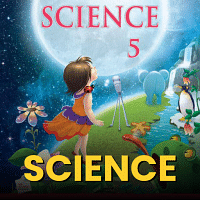Class 5 Exam > Class 5 Questions > Needed a Document for human body in detail? ...
Start Learning for Free
Needed a Document for human body in detail?
Related: Science Olympiad for Class 5
Most Upvoted Answer
Needed a Document for human body in detail? Related: Science Olympia...
The Human Body in Detail
Introduction:
The human body is a complex and fascinating system that consists of various organs, tissues, and cells working together to perform vital functions. Understanding the human body is important as it allows us to take care of our health and well-being. In this document, we will explore the human body in detail.
Major Systems of the Human Body:
- Skeletal System: The skeletal system provides support, protection, and movement to the body. It is made up of bones, joints, and cartilage.
- Muscular System: The muscular system allows movement and provides strength to the body. It is composed of muscles, tendons, and ligaments.
- Respiratory System: The respiratory system is responsible for the exchange of oxygen and carbon dioxide in the body. It includes the lungs, trachea, bronchi, and diaphragm.
- Circulatory System: The circulatory system transports nutrients, oxygen, hormones, and other substances throughout the body. It consists of the heart, blood vessels, and blood.
- Digestive System: The digestive system breaks down food into nutrients and eliminates waste. It includes the mouth, esophagus, stomach, intestines, liver, and pancreas.
- Nervous System: The nervous system controls and coordinates body functions. It comprises the brain, spinal cord, and nerves.
- Endocrine System: The endocrine system regulates hormones and plays a crucial role in growth, metabolism, and reproduction. It includes glands such as the pituitary, thyroid, and adrenal glands.
- Excretory System: The excretory system eliminates waste products from the body. It consists of the kidneys, bladder, ureters, and urethra.
- Reproductive System: The reproductive system is responsible for reproduction and includes organs such as the ovaries, uterus, testes, and penis.
Key Pointers:
- The human body is composed of various systems that work together to maintain homeostasis.
- Each system has specific functions and is made up of different organs and tissues.
- Understanding the human body helps in maintaining good health and preventing diseases.
- It is important to eat a balanced diet, exercise regularly, and get enough sleep to keep the body healthy.
- Regular check-ups and preventive measures can help in early detection and treatment of potential health issues.
In conclusion, the human body is a complex system with multiple interconnected systems. Understanding its structure and functions is essential for maintaining overall health and well-being.
Introduction:
The human body is a complex and fascinating system that consists of various organs, tissues, and cells working together to perform vital functions. Understanding the human body is important as it allows us to take care of our health and well-being. In this document, we will explore the human body in detail.
Major Systems of the Human Body:
- Skeletal System: The skeletal system provides support, protection, and movement to the body. It is made up of bones, joints, and cartilage.
- Muscular System: The muscular system allows movement and provides strength to the body. It is composed of muscles, tendons, and ligaments.
- Respiratory System: The respiratory system is responsible for the exchange of oxygen and carbon dioxide in the body. It includes the lungs, trachea, bronchi, and diaphragm.
- Circulatory System: The circulatory system transports nutrients, oxygen, hormones, and other substances throughout the body. It consists of the heart, blood vessels, and blood.
- Digestive System: The digestive system breaks down food into nutrients and eliminates waste. It includes the mouth, esophagus, stomach, intestines, liver, and pancreas.
- Nervous System: The nervous system controls and coordinates body functions. It comprises the brain, spinal cord, and nerves.
- Endocrine System: The endocrine system regulates hormones and plays a crucial role in growth, metabolism, and reproduction. It includes glands such as the pituitary, thyroid, and adrenal glands.
- Excretory System: The excretory system eliminates waste products from the body. It consists of the kidneys, bladder, ureters, and urethra.
- Reproductive System: The reproductive system is responsible for reproduction and includes organs such as the ovaries, uterus, testes, and penis.
Key Pointers:
- The human body is composed of various systems that work together to maintain homeostasis.
- Each system has specific functions and is made up of different organs and tissues.
- Understanding the human body helps in maintaining good health and preventing diseases.
- It is important to eat a balanced diet, exercise regularly, and get enough sleep to keep the body healthy.
- Regular check-ups and preventive measures can help in early detection and treatment of potential health issues.
In conclusion, the human body is a complex system with multiple interconnected systems. Understanding its structure and functions is essential for maintaining overall health and well-being.
Attention Class 5 Students!
To make sure you are not studying endlessly, EduRev has designed Class 5 study material, with Structured Courses, Videos, & Test Series. Plus get personalized analysis, doubt solving and improvement plans to achieve a great score in Class 5.

|
Explore Courses for Class 5 exam
|

|
Needed a Document for human body in detail? Related: Science Olympiad for Class 5?
Question Description
Needed a Document for human body in detail? Related: Science Olympiad for Class 5? for Class 5 2024 is part of Class 5 preparation. The Question and answers have been prepared according to the Class 5 exam syllabus. Information about Needed a Document for human body in detail? Related: Science Olympiad for Class 5? covers all topics & solutions for Class 5 2024 Exam. Find important definitions, questions, meanings, examples, exercises and tests below for Needed a Document for human body in detail? Related: Science Olympiad for Class 5?.
Needed a Document for human body in detail? Related: Science Olympiad for Class 5? for Class 5 2024 is part of Class 5 preparation. The Question and answers have been prepared according to the Class 5 exam syllabus. Information about Needed a Document for human body in detail? Related: Science Olympiad for Class 5? covers all topics & solutions for Class 5 2024 Exam. Find important definitions, questions, meanings, examples, exercises and tests below for Needed a Document for human body in detail? Related: Science Olympiad for Class 5?.
Solutions for Needed a Document for human body in detail? Related: Science Olympiad for Class 5? in English & in Hindi are available as part of our courses for Class 5.
Download more important topics, notes, lectures and mock test series for Class 5 Exam by signing up for free.
Here you can find the meaning of Needed a Document for human body in detail? Related: Science Olympiad for Class 5? defined & explained in the simplest way possible. Besides giving the explanation of
Needed a Document for human body in detail? Related: Science Olympiad for Class 5?, a detailed solution for Needed a Document for human body in detail? Related: Science Olympiad for Class 5? has been provided alongside types of Needed a Document for human body in detail? Related: Science Olympiad for Class 5? theory, EduRev gives you an
ample number of questions to practice Needed a Document for human body in detail? Related: Science Olympiad for Class 5? tests, examples and also practice Class 5 tests.

|
Explore Courses for Class 5 exam
|

|
Signup for Free!
Signup to see your scores go up within 7 days! Learn & Practice with 1000+ FREE Notes, Videos & Tests.























